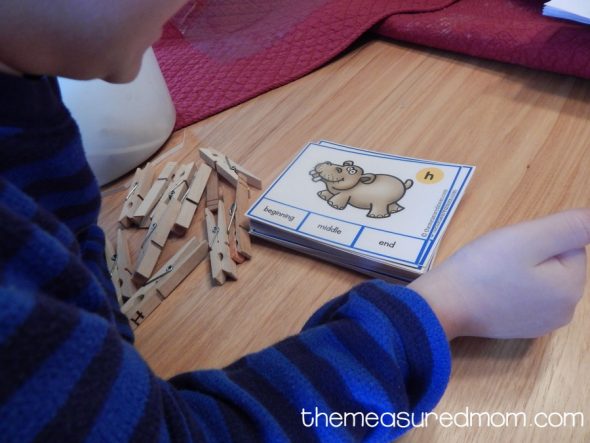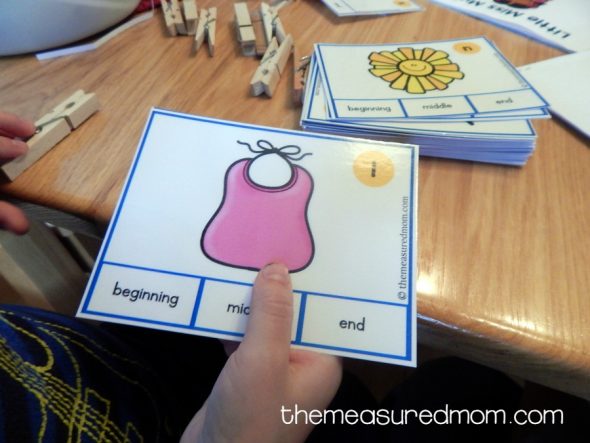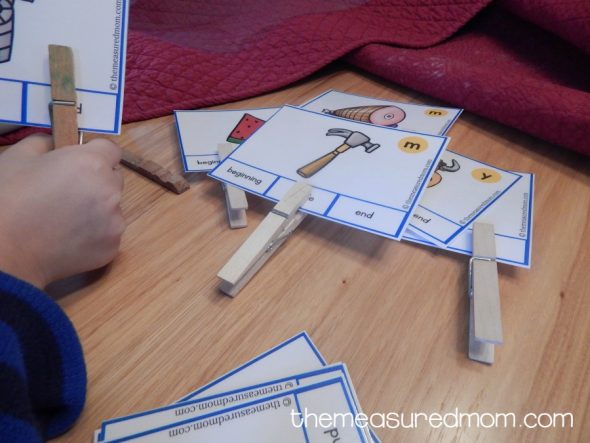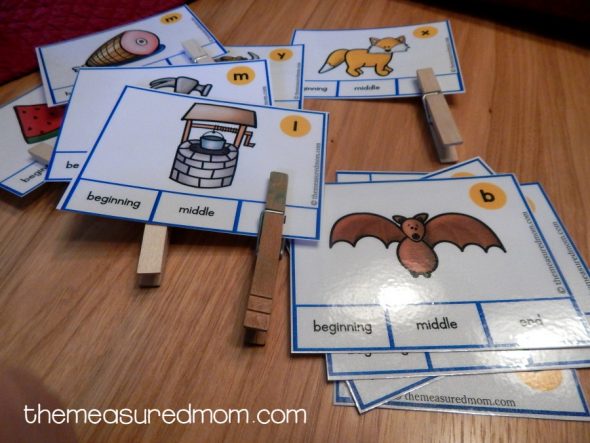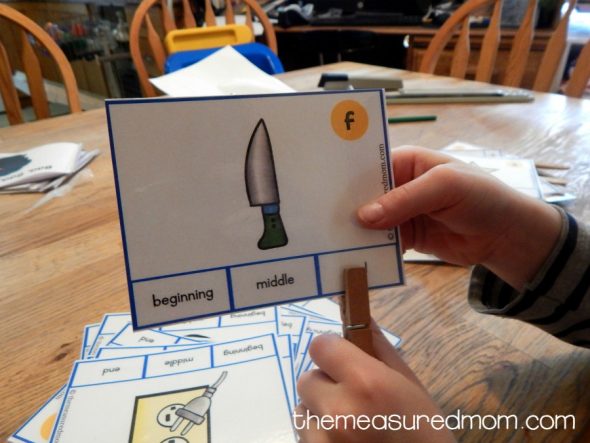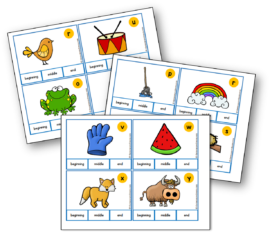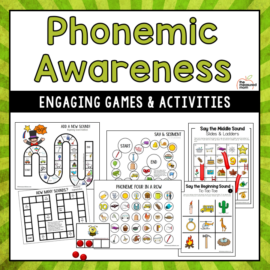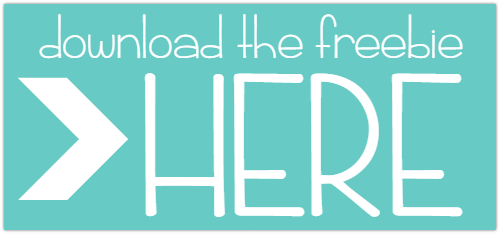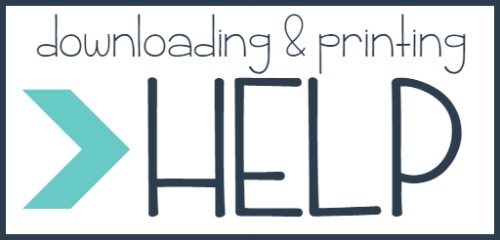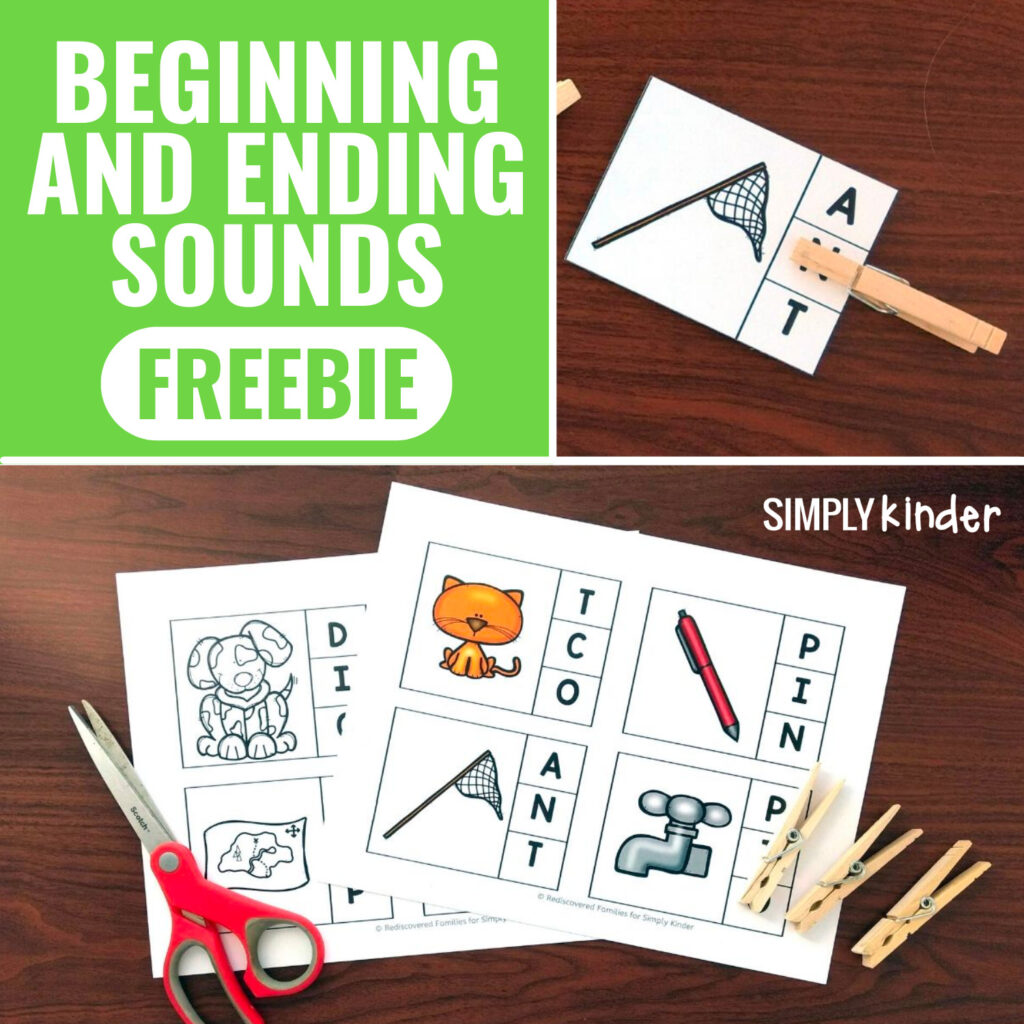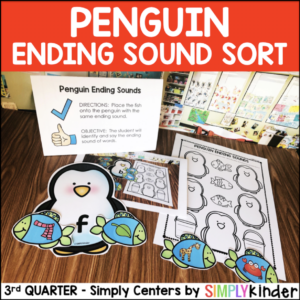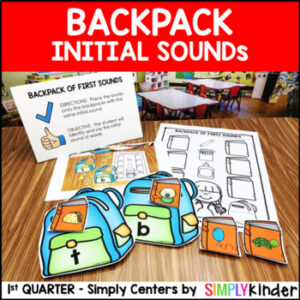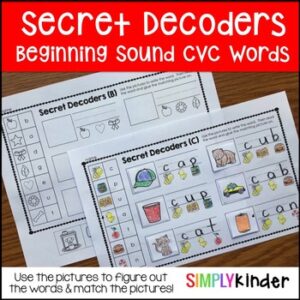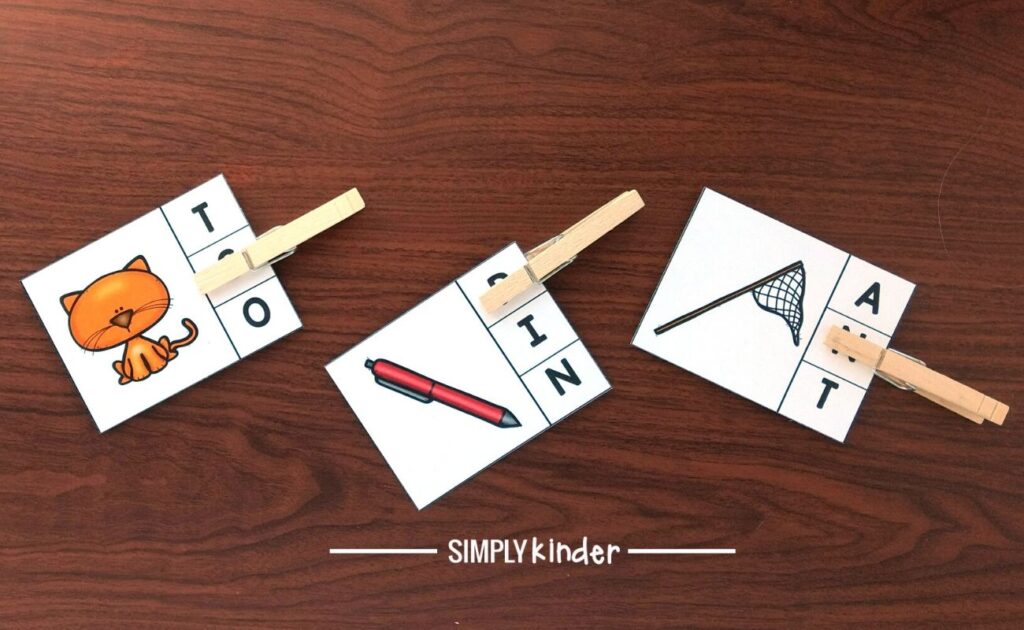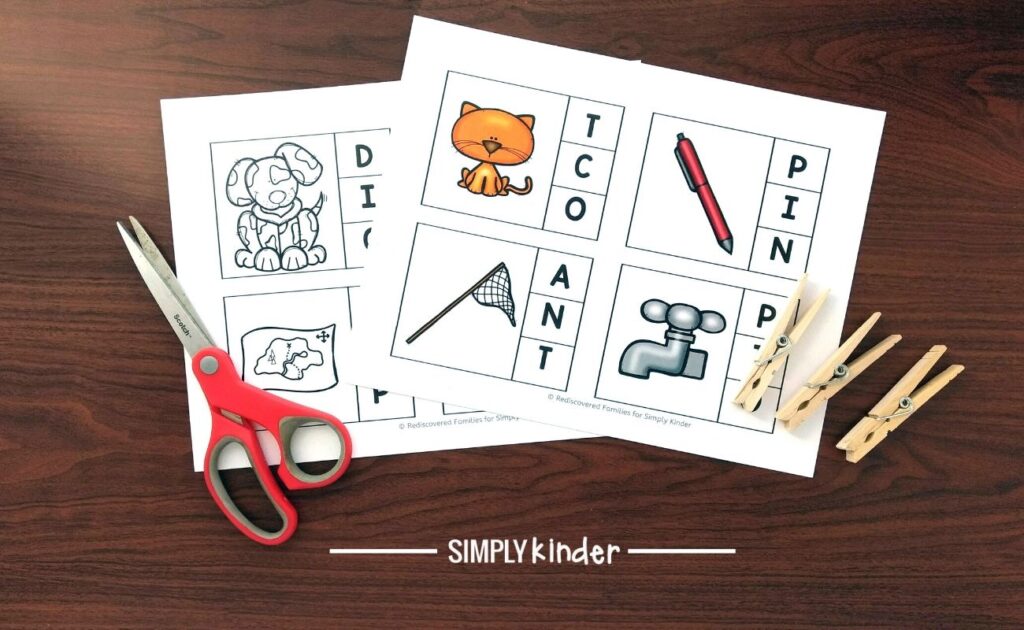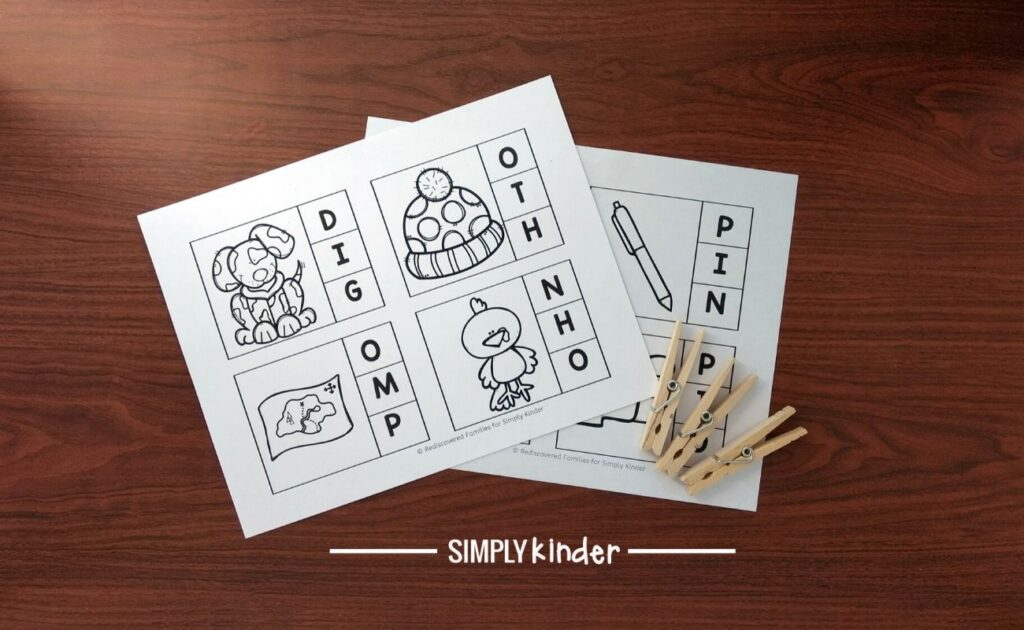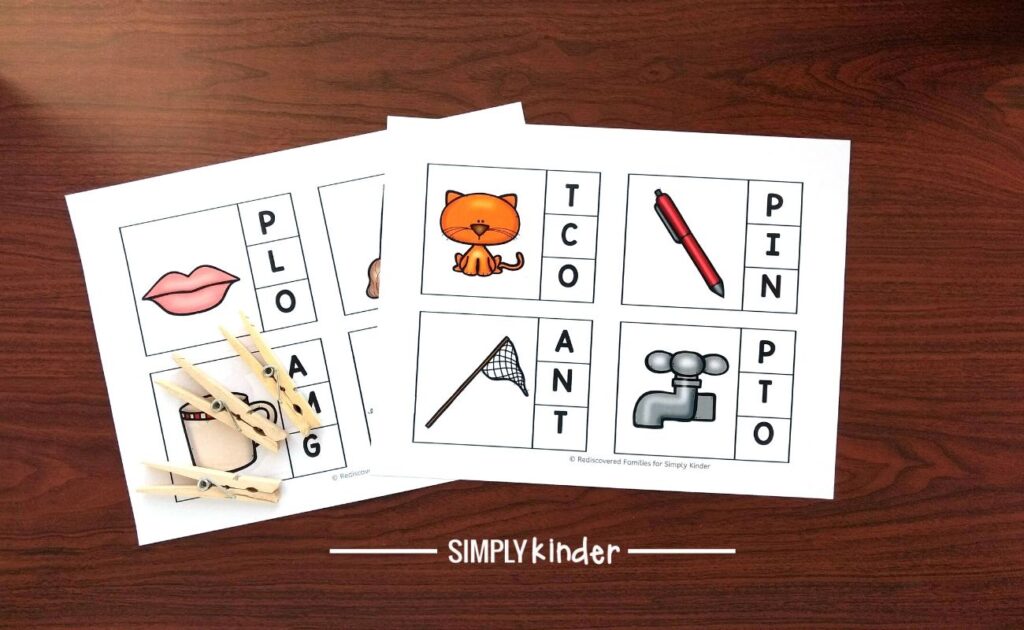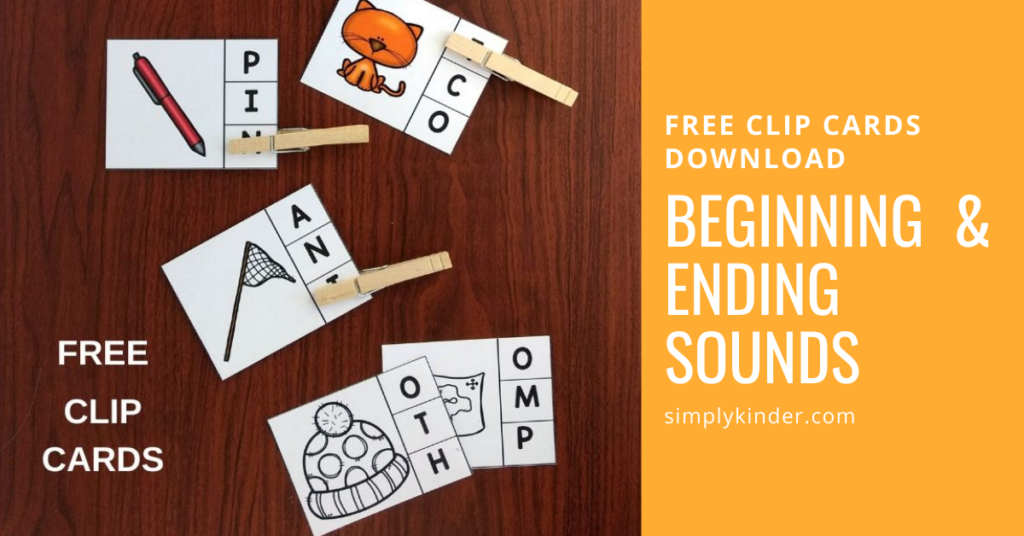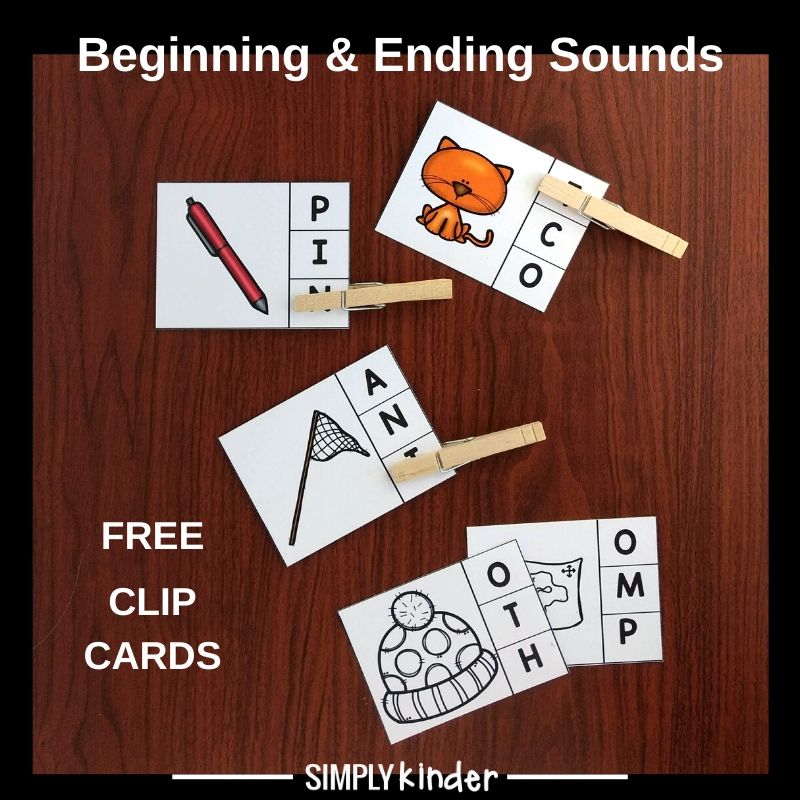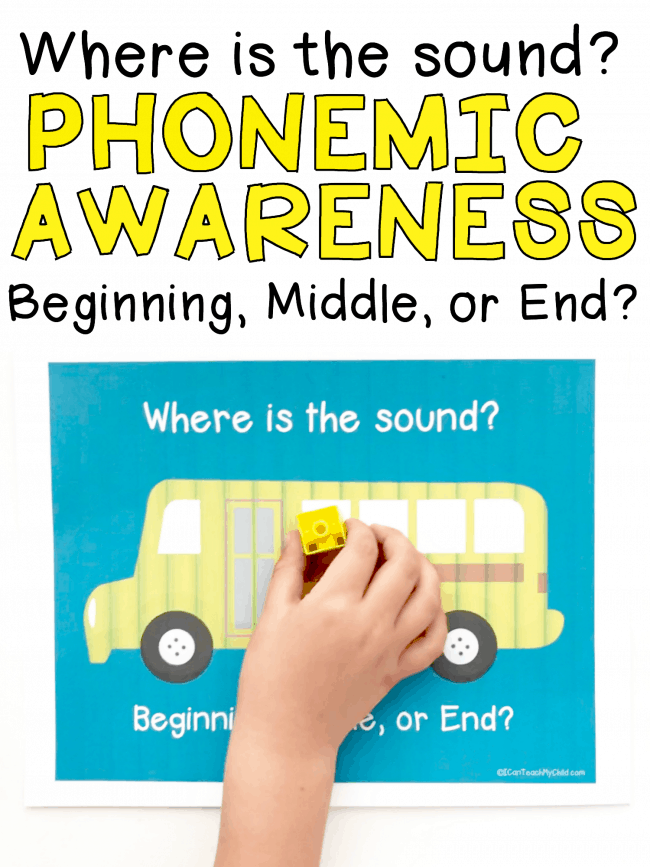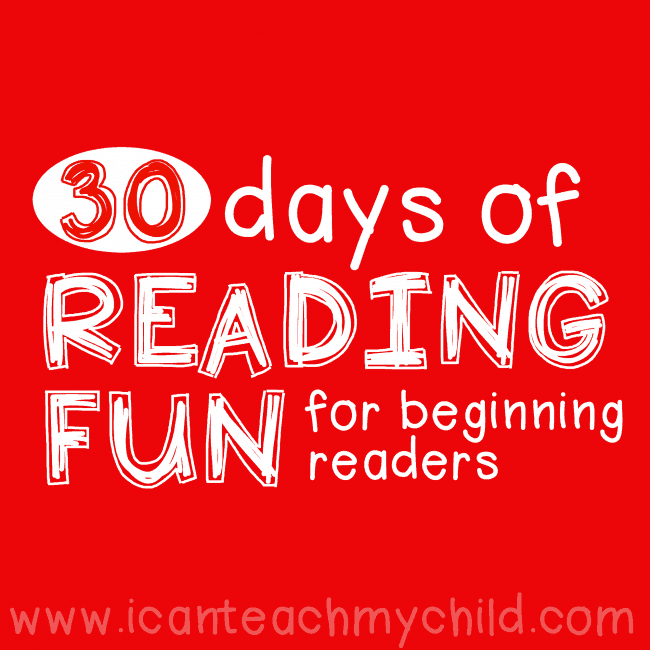- Home
-
Documents
- Beginning and Ending Sounds
Learning Notes This Spelling & Phonics lesson pack contains eight exercises on learning beginning and ending sounds. This pack of worksheets includes a series of exercises covering multiple skills that are often taught together or in sequence and can be used over 1-2 weeks. Teaching Tip Designate a key sound for students to listen for. Dictate words aloud and have students stand if they hear the key sound at the beginning of the word or sit if they hear the key sound at the end of the word. (Kinesthetic, Auditory) Modifications and/or Extensions To extend this activity, choose a key word and give students clues by telling them a word that rhymes with the ending sound of the key word. Have them try to guess the word. Recommended Exercises Introductory: Exercises on Sound-Symbol Relationships Follow-up: Exercises on Word Patterns Beginning and Ending Sounds Learn beginning and ending sounds by identification and matching Language Arts Lesson Pack » Phonemic Awareness Lesson Packs are selections from popular EPS series, grouped together by skill. They include teaching tips, alignment with standards and extensions for use in the classroom. They are just one component of Lesson Logic, an online service of EPS. Visit www.lessonlogic.com for more information. LESSON PACK © 2001-02 by Educators Publishing Service. Licensed for duplication and use by subscriber during subscription period only. www.LessonLogic.com Lesson Pack ID: 01-00000-778
-
Author
-
View
220 -
Download
0
Embed Size (px)
Text of Beginning and Ending Sounds
-
Learning Notes This Spelling & Phonics lesson pack contains
eight exercises on learning beginningand ending sounds. This pack
of worksheets includes a series of exercises coveringmultiple
skills that are often taught together or in sequence and can be
used over1-2 weeks.Teaching Tip Designate a key sound for students to listen for.
Dictate words aloud and havestudents stand if they hear the key
sound at the beginning of the word or sit if theyhear the key sound
at the end of the word. (Kinesthetic, Auditory)Modificationsand/or Extensions To extend this activity, choose a
key word and give students clues by telling them aword that rhymes with the ending sound of the key word. Have
them try to guess theword.Recommended ExercisesIntroductory: Exercises on Sound-Symbol
RelationshipsFollow-up: Exercises on Word Patterns
Beginning and Ending SoundsLearn beginning and ending sounds by
identification andmatchingLanguage Arts Lesson Pack Phonemic Awareness
Lesson Packs are selections from popular EPS series, grouped
together by skill. They include teaching tips,alignment with standards and extensions for use in the
classroom. They are just one component of LessonLogic, an online service of EPS. Visit www.lessonlogic.com for
more information.LESSON PACK
2001-02 by Educators Publishing Service. Licensed for
duplication and use by subscriber during subscription period
only.www.LessonLogic.com Lesson Pack ID: 01-00000-778
-
To learn more about these books, please visit
www.epsbooks.com/html/catsearch.aspand type in the name of the
book in the search boxThe Lessons included in this pack are as follows:
Beginning and Ending Sounds From the EPS book Handprints BThese
exercises practice identifying beginning and ending soundsBeginning and Ending Sounds Handprints BRecognize initial and
final sounds in wordsEnding Sounds Handprints BIdentify the final sound of each item:
b, g, k, l, p, r, t, vEnding Sounds: Picture Matching Handprints BIdentify pairs of
items with the same ending sound: b, f, g, nEnding Sounds Handprints BConnect each picture with its ending
soundEnding Sounds Handprints BIdentify the final sound of each item:
d, f, m, p, r, s, t, zEnding Sounds: Lowercase Handprints BWrite the correct end sound
for each picture: lowercaseBeginning and Ending Sounds Handprints BAdd beginning and end
sound letters to complete the word2001-02 by Educators Publishing Service. Licensed for
duplication and use by subscriber during subscription period
only.www.LessonLogic.com Lesson Pack ID: 01-00000-778
-
Customized message: Name of member, etc Subscription expiration
date: 00/00/00Copyright 2000 by Ann L. Staman. Licensed for
duplication and use by subscriber during subscription period
only.www.LessonLogic.com locating ending sounds Lesson ID:
01-02452-083-0Nam
eP
ut y
our
fing
er o
n th
e do
t. T
race
the
arr
ow a
s yo
u sl
owly
say
the
nam
e of
the
pic
ture
. Doe
s th
e so
und
of t
hele
tter
in t
he b
ox c
ome
at t
he b
egin
ning
(
) or
end
(
) o
f th
e na
me?
Cir
cle
the
lett
er t
hat
is in
the
rig
ht p
lace
.
g ll
dd
nn
bb
mm
bb
mm
hh
g
-
Customized message: Name of member, etc Subscription expiration
date: 00/00/00Copyright 2000 by Ann L. Staman. Licensed for
duplication and use by subscriber during subscription period
only.www.LessonLogic.com locating ending sounds Lesson ID:
01-02452-084-0Nam
eS
ay t
he n
ame
of t
he p
ictu
re. W
rite
the
lett
er o
n th
e fi
rst
line
if y
ou h
ear
the
soun
d at
the
beg
inni
ngof
the
wor
d. W
rite
the
lett
er o
n th
e se
cond
line
if y
ou h
ear
the
soun
d at
the
end
of t
he w
ord.
p d
m kfr
p
-
Customized message: Name of member, etc Subscription expiration
date: 00/00/00Copyright 2000 by Ann L. Staman. Licensed for
duplication and use by subscriber during subscription period
only.www.LessonLogic.com locating ending sounds Lesson ID:
01-02452-085-0Nam
e
j r
Put
you
r fi
nger
on
the
dot.
Tra
ce t
he a
rrow
as
you
slow
ly s
ay t
he n
ame
of t
he p
ictu
re. C
ircl
e th
e so
und
you
hear
at
the
end
of t
he w
ord.
c p
g d
l t
l f
p v
k n
v b
-
Customized message: Name of member, etc Subscription expiration
date: 00/00/00Copyright 2000 by Ann L. Staman. Licensed for
duplication and use by subscriber during subscription period
only.www.LessonLogic.com matching ending sounds Lesson ID:
01-02452-086-0Nam
eC
ircl
e th
e pi
ctur
e in
eac
h ro
w t
hat
ends
wit
h th
e sa
me
soun
d as
the
pic
ture
in t
he b
ox.
-
Customized message: Name of member, etc Subscription expiration
date: 00/00/00Copyright 2000 by Ann L. Staman. Licensed for
duplication and use by subscriber during subscription period
only.www.LessonLogic.com identifying ending sounds Lesson ID:
01-02452-087-0Nam
eD
raw
a li
ne f
rom
eac
h pi
ctur
e to
the
sou
nd y
ou h
ear
at t
he e
ndof
the
wor
d.
f s b
g v m p l k
n t r
-
Customized message: Name of member, etc Subscription expiration
date: 00/00/00Copyright 2000 by Ann L. Staman. Licensed for
duplication and use by subscriber during subscription period
only.www.LessonLogic.com identifying ending sounds Lesson ID:
01-02452-088-0Nam
eD
raw
a li
ne f
rom
eac
h pi
ctur
e to
the
sou
nd y
ou h
ear
at t
he e
ndof
the
wor
d.
d f z r
m t s p
-
Customized message: Name of member, etc Subscription expiration
date: 00/00/00Copyright 2000 by Ann L. Staman. Licensed for
duplication and use by subscriber during subscription period
only.www.LessonLogic.com identifying ending sounds Lesson ID:
01-02452-089-0Nam
eS
ay t
he n
ame
of t
he p
ictu
re. W
rite
the
low
erca
se le
tter
for
the
sou
nd y
ou h
ear
at t
he e
ndof
the
wor
d.
s
-
Customized message: Name of member, etc Subscription expiration
date: 00/00/00Copyright 2000 by Ann L. Staman. Licensed for
duplication and use by subscriber during subscription period
only.www.LessonLogic.com identifying beginning and ending sounds
Lesson ID: 01-02452-093-0Nam
eS
ay t
he n
ame
of t
he p
ictu
re. W
rite
the
beg
inni
ng a
nd e
ndin
g le
tter
for
eac
h w
ord.
ua
ue o
ai aa
li d
Untitled
This post contains affiliate links. As an Amazon Associate I earn from qualifying purchases.
Try this activity to help your child identify the beginning, middle, and ending sound in a particular word.
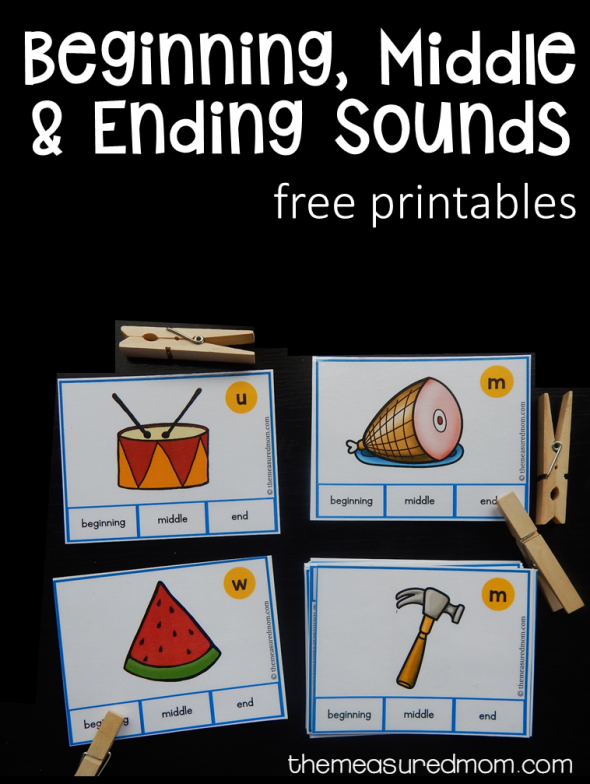
In January, when I celebrated my blog’s 3-year anniversary, I asked my readers what materials they’d like to see next. One repeated request was activities that focus on beginning, middle, and ending sounds within words.
We already have quite a few beginning sound activities. We even have some middle vowel clip cards. But I hadn’t created any ending sounds activities yet, nor did I have anything that combined all three.
Until now!
Introducing…
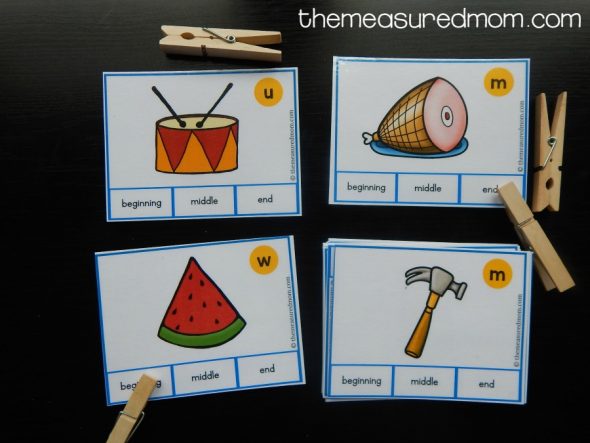
“Where’s that sound?” clip cards
To play:
- Have your child identify the sound of the featured letter in the gold circle.
- Tell your child to say the name of the picture slowly, listening for the featured sound.
- Your child can point to or clip the word “beginning,” “middle,” or end” to show where the sound occurs within the word.
I began this game with my Four, who knows his letter sounds well (except for those pesky short vowels) and was ready for the next step.
First, I showed my preschooler that he needed to listen for whether the sound was in the beginning, middle, or end of a word. Even though he can’t read those three words, he had no trouble remembering which was which as he did the activity.
He identified the main sound and said the name of each picture. “Hippo. Hhhhippo. Beginning.”
Some of the cards made him think a little… like this one. He’s still shaky with his vowel sounds, so I reminded him that short i says /i/.
I was pleased when he could hear the middle consonant sounds, such as /m/ in hammer.
I’ll be honest and tell you that after a few cards he became frustrated and wanted to quit. (He got stuck on the word “olive.”) I’m used to this sort of thing from him, so when I feel like we should keep going, I insist on it.
I know it looks like I do learning activities like this with my kids all the time, but it’s truly only a handful of times a week. And since he’d clearly demonstrated he could do this activity, I pushed him to do a few more cards. “Just five more.”
Well, after he cheered up he chose to keep going for quite a few more than five.
After my kindergartner came home, I pulled out the activity for him, too. He had to think a minute for cards like this one. He knew that knife ends with an e, but he also knew that since the e is silent, the /f/ sound is what comes at the end of the word.
He did about half of the set, but I don’t have more pictures to share because most of them were blurry. I was holding our 2-month-old at the time, and my multitasking only goes so far!
We hope you enjoy this freebie!
Get your free beginning, middle, and ending sound clip cards!
BUILD A STRONG READING FOUNDATION
Phonemic Awareness Games & Activities
$24.00
The research is in! Children with a strong foundation of phonemic awareness become better readers. Our bundle is your one-stop shop for teaching all levels of this important skill.
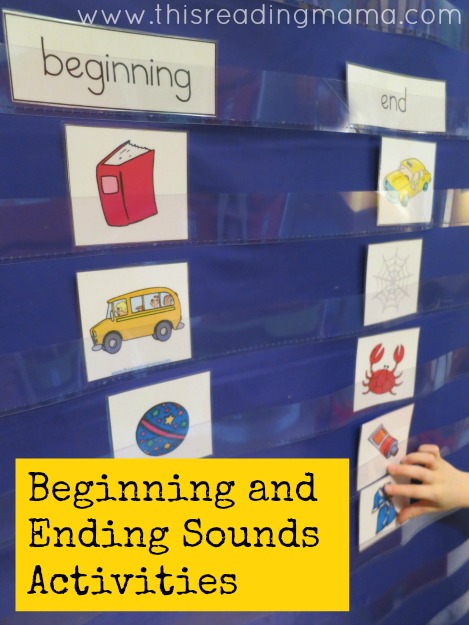
Beginning and Ending Sounds Listening Sort
The first thing I did was print off a couple of beginning and ending letter sorts from the free download. {Click to download at the end of the post.} We used our pocket chart this activity, but you could totally use a table top or floor space if you don’t have a pocket chart. At the top, I placed the words beginning and end so he had a place to sort the pictures.
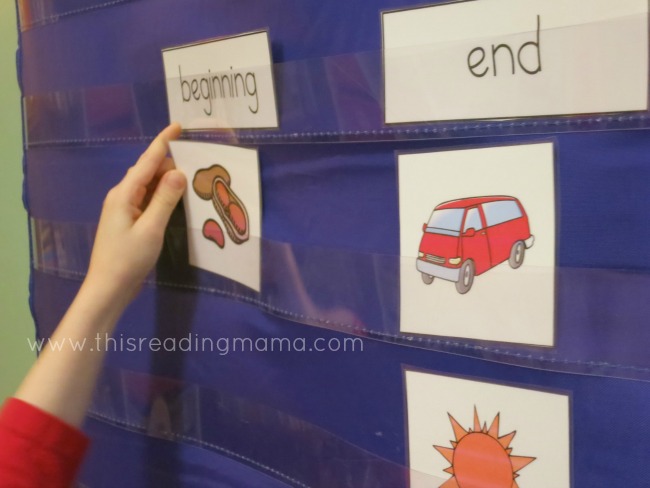
Beginning and Ending Sounds Listening Game
On day 3, I placed the beginning and end cards on the floor. I printed off and laminated several different letter sounds from the free packet {see below}. This time, I asked him to point to either beginning or ending, depending on where he heard the sound in the word.
For example, I said, “Where do you hear the /g/ sound in goat?” To see this activity in action, please click on the youtube video you see below. {I really don’t know what he’s giggling about in the video. He’s just a happy child and loves life!} He did very well with this. I was pleased to see his understanding of the concept.
Enjoy Teaching!
~Becky
When one word ends with a vowel sound and the next word begins with a vowel sound, we link the words with a sort of Y or W sound. It depends on the shape of our mouth at the end of the first word.
Lips wide
When the first word ends in an a, e, i vowel sound [ eɪ / i: / aɪ ], our lips are wide. Then we insert a Y sound at the beginning of the next word:
| we write | first word ends with |
we say |
|---|---|---|
| pay all | /eɪ/ | payyall |
| the end | /i:/ | theyend |
| lie on | /aɪ/ | lieyon |
| write | They all buy at the arcade. |
|---|---|
| say | theyyall buyyat theyarcade |
Here are some more examples of word pairs that are linked with Y.
- lay out, may I, say it
- he ate, she is, we are
- high up, my arm, why ever
Lips round
When the first word ends in an o, u vowel sound [ əʊ / u: ], our lips are round. Then we insert a W sound at the beginning of the next word:
| we write | first word ends with |
we say |
|---|---|---|
| go out | /əʊ/ | gowout |
| too often | /u:/ | toowoften |
| write | You all go out too often. |
|---|---|
| say | youwall gowout toowoften |
Here are some more examples of word pairs that are linked with W.
- no other, show off, grow up
- you are, too often, throw it
The ability to discriminate between the beginning, middle, and ending sounds helps students progress faster in phonics skills.
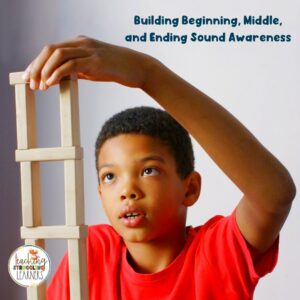
The fact is, being able to identify the beginning, middle, and ending sound in words is super important when building phonemic awareness and eventually phonics skills….even if we sometimes don’t want to admit it.
I’m going to be honest, this post has made me nervous. I feel very confident in my abilities to teach blending and segmenting sounds. Yeah, the concept just makes me a little uncomfortable.
I think my struggles teaching beginning, middle, and ending sounds has something to do with my dyslexic brain.
I, as an adult, have a hard time discriminating between the sounds in words and picking one that is the same. Teaching beginning sounds, for phonemic awareness is something I’ve done for years. I still don’t feel completely confident though.
I’m getting ahead of myself, I should explain what this skill is. Bear with me, like I said, I’m not as comfortable with this skill so I’m probably going to stumble through this more than usual.
What do you mean beginning, middle, and ending sounds?
- This is the next step up from segmenting phonemes.
-
Students should be able to hear 2 words and know if they share the same beginning, middle, or end sound.
-
For example, cat and map have the same middle sound. Another example of this skill would be if you gave a student the word hat, could they give you a word with the same beginning sound.
-
This skill set has more facets than blending or segmenting.
-
It also requires the student to understand the concepts of first, middle, and end. This can be confusing without a visual.
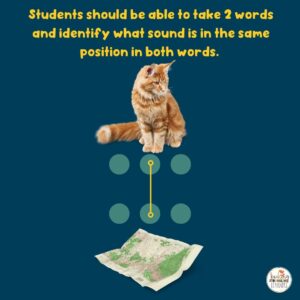
Students missing this skill may have several different skill deficits.
Some students may have a hard time rhyming, or with alliteration for example. Other students may struggle with spelling. They may not differentiate between words in the same word family or with different medial vowel sounds.
How do I work on beginning, middle, and ending sounds?
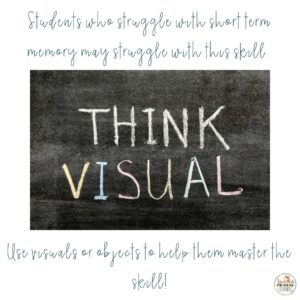
Because this is a more complicated skill, using visuals is really helpful. Have students start with segmenting a word, then identifying what the beginning, middle, or ending sound is in the word (just picking out one).
When students are comfortable, move on to giving students 2 words and telling you which one has the beginning, middle, or ending sound you call out.
Eventually, you’ll be able to build up to giving students 3 or 4 words and asking them to tell you which word doesn’t have the same beginning, middle, or ending sound. Another option is giving them a word and asking the student to give you a word with the same beginning, middle, or ending sound.
Suggestions on how to progress monitor this?
You know I have suggestions for progress monitoring!
Just as you would with any other skill, make sure you have charts and have made a goal to track. Choose either the beginning, middle, or ending sound to track. Doing all three is just too much!
There are a lot of ways to track, but some easy ways are to say a sound and then 3 or 4 words. As the student to tell you which word has the same sound in the position you are tracking. If you can use pictures to help the students remember the words, that will help you to get a better grasp of their skill ability instead of their ability to hold things in short term memory.
I’ve been working really hard to compile the different assessments that I’ve made over the years into one item to share. Progress monitoring beginning, middle, and ending sounds could take so many different forms, so this has been a real labor of love. You can check out my Beginning, Middle, and Ending Sound Progress Monitoring product on TPT.
Another option, if you want all the progress monitoring is my Phonemic Awareness Progress Monitoring Bundle. This is where I am compiling all of my phonemic awareness progress monitoring probes, so if you don’t want to make your own, check it out!
Check out the podcast below for more information!
For weekly updates on podcasts or blogposts, sign up below!
Join the Teaching Struggling Learners Weekly Newsletter
Subscribe to get our latest content by email.
We won’t send you spam. Unsubscribe at any time.
Do you need to create a simple literacy center to help your kindergarten students practice beginning and ending sounds? Our FREE sounds clip cards are easy to prepare and kinders love them. They are a great addition to your literacy tool kit. Keep scrolling to get your FREE download.
This Resource Works Well With
-
$3.00
-
$3.00
-
$4.00
I think clip cards are a great activity for kindergarten kids. There are so many variations and most young learners seem to really enjoy the game. This set practices phonemic awareness AND develops fine motor skills. Two skills in one activity. How’s that for a teacher win?
A Fun Way To Practice Isolating Beginning and Ending Sounds
We all want to see our students succeed in reading. So it is worth making sure that each child has mastered those pre-reading skills so that they have a strong foundation to build on.
Kinders that can isolate the sounds in a word and connect the sounds to letters are well on their way to becoming a reader. As with any skill, the children will benefit from plenty of practice.
Our beginning and ending sounds clip cards provides a hands-on practice that is fun and engaging. They are designed to help children practice phenome isolation. In a nutshell, this involves isolating and identifying sounds in the words. We have used CVC (consonant- vowel-consonant) words as they can be broken into three distinct sounds.
Phenome isolation is an important skill to develop as children begin to develop phonemic awareness. Once Kinders can isolate and identify sounds in words, they can begin to blend the sounds together and sound out words.
To learn more about phonemic awareness and why it is so important click here.
Our beginning/ ending clip cards are fast and easy to make. Once you have them made, just add some clothespins, and voila you have a literacy center! You can also use these clip cards as a quiet game for early finishers or provide the link for parents to make a set at home.
As the name suggests, these clip cards can be used to practice either beginning or ending sounds. You choose! They feature generic pictures, so they are ready to go at any time of year.
How To Use Beginning and Ending Sounds Clip cards
Each card has a picture depicting a CVC word. You know how it works. Children pick up a clip card and look at the picture. Encourage them to say the word aloud and pay attention to the sound that is at the beginning/ end of the word. Then they clip a clothespin over the correct letter sound. Repeat until all the cards have clothespins on them. You can specify beginning or ending sounds.
As you are probably aware, beginning sounds are the easiest for young learners to isolate and identify. Start with beginning sounds and as students progress switch to ending sounds.
Teacher’s Tip: Try indicating the right answer on the back of the card with a dot. Encourage students to turn the card over and check their answer once they have placed the clothespin!
We’ve provided two sets, one in color and one in black and white for those of you without color printers.
Making the Clip Cards
SUPPLIES
- Free printable clip card file (download below)
- Cardstock
- Laminator
- Paper cutter or scissors
- Wooden clothes pins
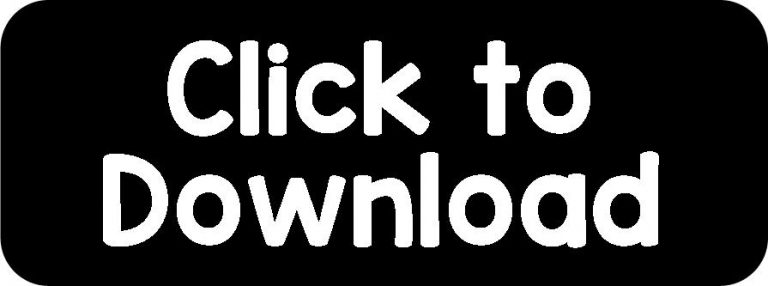
PREPARATION
- Print the beginning and ending sounds clip cards onto your cardstock.
- Laminate the sheets and cut out the cards *
*Note: You don’t need to laminate these sets, but they will last much longer if you do.
You can store the cards in a bag or container with the clothespins, so the game is always ready to go.
Introducing the beginning and ending sounds center
My preference is to introduce a new learning center activity to the whole class. This allows you to quickly see who understands the activity and who may need some extra help. It is also helpful to model how to use the clip cards.
Pick out a card, point to the picture and say the word. Repeat the word, but this time exaggerate the beginning or ending sounds. Then invite the children to help you match the sound to the correct letter.
A fun way of doing this is to try all the other letter choices. For example, you could pick out the top card and say, “Is it the P? Yes, it is the P. P-A-P Pap right?!” For some reason, Kinders think it is really funny when you make this kind of mistake.
Other Literacy Activities
- Beginning Sounds Free secret decoders
- Free I Spy Beginning sounds printable
- Phoneme segmenting cards
- CVC Activities For Kindergarten
- Short and Long Vowel Blending Activities
Your Turn
What are your favorite activities to practice beginning and ending sounds? Please leave a comment below.
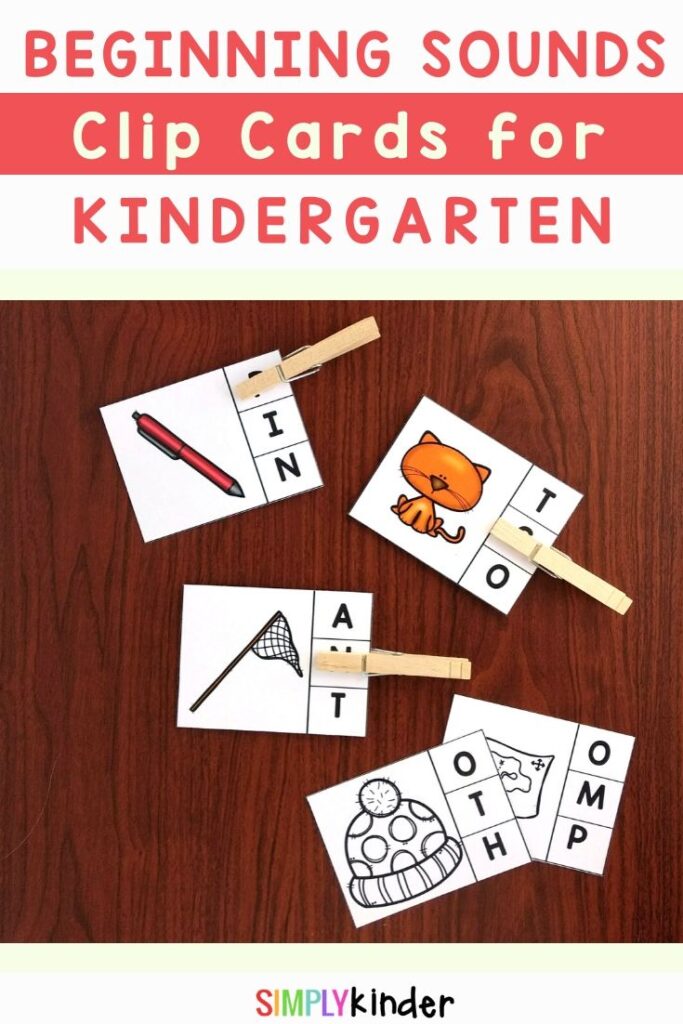
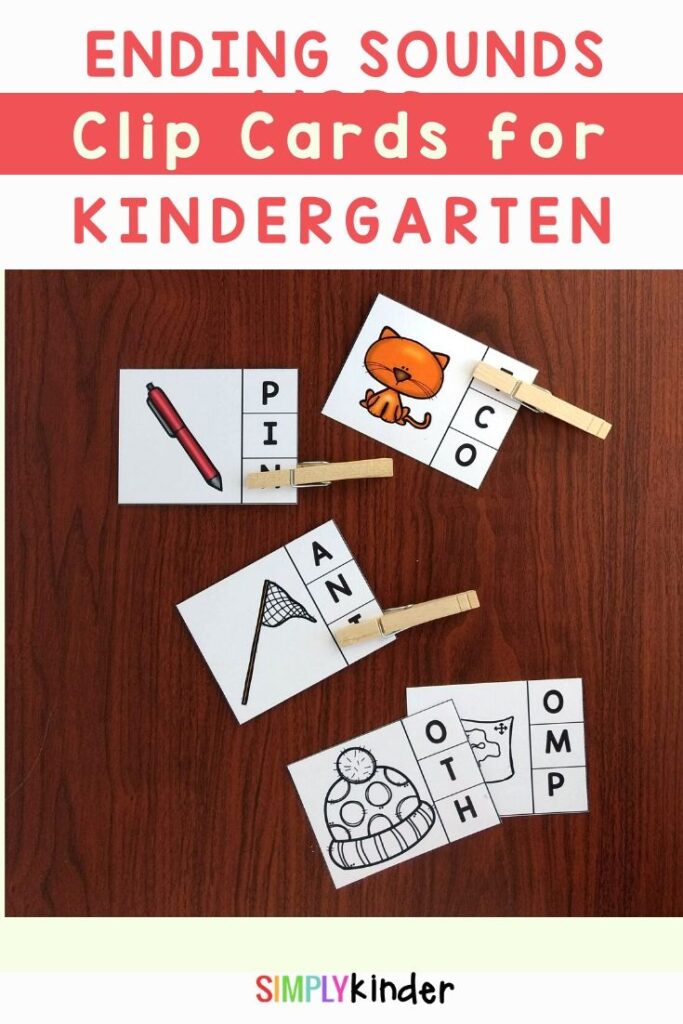
10000+ results for ‘beginning and ending sounds’
initial or final /sh/
Group sort
by Cacrispin
K
Phonics
beginning letter sounds
Ending Sounds
Fundations
/sh/ words (3 sounds)
Match up
by Cacrispin
K
Phonics
beginning letter sounds
Ending Sounds
Fundations
digraph /th/
Group sort
by Cacrispin
K
Phonics
beginning letter sounds
Ending Sounds
Fundations
Beginning and Ending Sounds
Gameshow quiz
by Inspirededjax
OG
Phonemic Awareness
Reading
T2 Initial, Final & Medial Sounds Assessment
Quiz
by Cacrispin
K
Phonics
assessment
beginning letter sounds
Ending Sounds
Medial Sounds
Beginning Sounds
Random cards
by Cacrispin
K
beginning letter sounds
Fundations
Beginning and Ending Sounds
Quiz
by Bsdavis
G1
Reading
Final Sounds in words
Quiz
by Cacrispin
K
Ending Sounds
Beginning and Ending Sounds
Gameshow quiz
by Tphillips
Beginning and Ending Sounds
Gameshow quiz
by Ashleyszusz
Beginning and Ending sounds
Open the box
by Larhoover
Quiz- initial and medial sounds (qu, z week)
Quiz
by Cacrispin
K
Phonics
beginning letter sounds
Robot Beginning Sounds
Flip tiles
by Cacrispin
K
Phonics
beginning letter sounds
Digraphs
Fundations
Beginning, middle, ending sounds
Quiz
by Lhoover
K
G1
Reading
Beginning Sounds- Find the Short «a» Sounds (Phonemic Awareness)
Whack-a-mole
by Lisameechan
Intervention
K
Special Ed
Beginning Sounds Short a
Phonemic Awareness
Phonics
Final Sounds Assessment
Quiz
by Cacrispin
K
assessment
Ending Sounds
«sh» beginning and ending sounds
Whack-a-mole
by Keelabb100
Fundations Sounds- Flip Tiles
Flip tiles
by Cacrispin
K
Phonics
beginning letter sounds
Initial Sounds Assessment
Quiz
by Cacrispin
K
assessment
beginning letter sounds
Ending Sounds
Find the match
by Cacrispin
K
Ending Sounds
Green Lesson 12 beginning sounds
Categorize
by Cab4226
G1
English
Reading
beginning sounds
LLI
Initial sound /y/ Whack a Mole
Whack-a-mole
by Cacrispin
K
beginning letter sounds
Wilson
Letter to Sound Match-Up
Match up
by Cacrispin
Intervention
Phonics
beginning letter sounds
/y/, /w/ Initial Sound Sort
Group sort
by Cacrispin
K
Wilson
beginning letter sounds
Fundations Sounds- Flip Tiles (- pictures)
Flip tiles
by Cacrispin
K
Phonics
beginning letter sounds
Match Pictures with the Same Beginning Short Vowel Sounds (Phonemic Awareness)
Matching pairs
by Lisameechan
Intervention
K
G1
Special Ed
Beginning Sounds Short a
Phonemic Awareness
Phonics
Wk 2 n,m Letter Sound Fluency Cards
Random cards
by Cacrispin
K
Phonics
beginning letter sounds
Fundations
Sound Sort /qu/ /k/ /w/
Group sort
by Cacrispin
K
Phonics
beginning letter sounds
Fundations
Sound Sort /s/ /d/ /g/
Group sort
by Cacrispin
K
Reading
beginning letter sounds
Letter Sound Assessment
Flash cards
by Cacrispin
K
G1
Special Ed
Phonics
assessment
beginning letter sounds
Beginning Sound Practice Sonday Prereading Level 4 Review
Find the match
by Cab4226
K
G1
English
Reading
Sonday
Sounds
beginning sounds
Same Final Sounds in words
Quiz
by Cacrispin
K
Ending Sounds
Phonemic Awareness
Green Lesson 8 Phonics Word Work
Image quiz
by Cab4226
G1
English
beginning sounds
LLI
Beginning and Ending Blends
Random wheel
by Abaskingirl
Beginning and Ending Blends
Quiz
by Lindsey10
G1
G2
Phonics
beginning and ending blends
Random wheel
by Bzlanguageandli
orton gillingham
/a/, /o/ initial sound sort
Group sort
by Cacrispin
K
beginning letter sounds
Fundations
Beginning and Ending Blends
Random cards
by Dtp123
Beginning Sounds and Letters
Quiz
by Amyhowell17
G2
Beginning Sounds and Letters
Quiz
by Amyhowell17
G2
initial sound /w/ Whack a Mole
Whack-a-mole
by Cacrispin
K
beginning letter sounds
Wilson
1st Grade LLI Green Lesson 9
Open the box
by Cab4226
G1
beginning sounds
LLI
beginning and ending blends
Find the match
by Wrdnrd
K
G1
phonics
Beginning and Ending Blends
Anagram
by Bethnyc
Beginning and Ending Blends
Whack-a-mole
by Csalt
Beginning and Ending «th»
Group sort
by Keelabb100
Needed Fundations Sounds- May
Flip tiles
by Cacrispin
K
Phonics
beginning letter sounds
Digraphs
Fundations
SH, CH, and TH Beginning and Ending Sounds Sort
Group sort
by Sserafin
K Sound Cards (no pictures) consants, vowels & digraphs
Random cards
by Cacrispin
K
Phonics
beginning letter sounds
Fundations
Tt, Mm, Aa Sound Sort
Group sort
by Cacrispin
Intervention
K
G1
Phonics
beginning letter sounds
Match the beginning and ending sounds to make a word
Find the match
by Sgross
beginning and ending blends
Random cards
by Chambers1
Beginning and Ending Blends
Hangman
by Lindsey10
G1
G2
Phonics
Lable the Elf on the Shelf
Labelled diagram
by Cacrispin
K
beginning letter sounds
Christmas
Holidays
Beginning Letters and Sounds
Group sort
by Lkateeb
K
Spelling Beginning, Middle, Ending Sounds PTF Book 1
Quiz
by Teresaallen
i,u Fluency Cards
Random cards
by Cacrispin
K
Phonics
beginning letter sounds
Wk 1 t,b,f Fluency Wheel
Random wheel
by Cacrispin
Intervention
K
Phonics
beginning letter sounds
Fundations
Wk 1 t,b,f Fluency Cards
Random cards
by Cacrispin
K
Phonics
beginning letter sounds
Fundations
Fundations — Sound Cards 2021-22
Random cards
by Cacrispin
K
beginning letter sounds
Fundations
Today is Tuesday of our 30 Days of Reading Fun for Beginning Readers series and on Tuesdays we explore phonemic awareness concepts. Identifying and isolating individual sounds in words can sometimes be difficult for beginning readers. This activity aims to make what would normally be an auditory process into something more concrete and tangible without using letters (in keeping with true phonemic awareness).
I created this school bus printable for this activity. I asked my daughter to put the unifix cube at the front of the bus for the beginning sound, in the middle of the bus for the middle sound, and at the back of the bus for the ending sound.
I introduced each word and then said, “Where is the sound /__/ in the word _______?”
For example, I gave my daughter the cube and put the school bus in front of her. I said, “Where is the sound /d/ in the word ‘dog’?” She then would move the cube to the front of the bus because the /d/ sound is at the beginning of the word. We continued this with several of the simple CVC words I included in the printable.
(And please excuse my yucky looking copy of the printable…my printer is acting up!)


